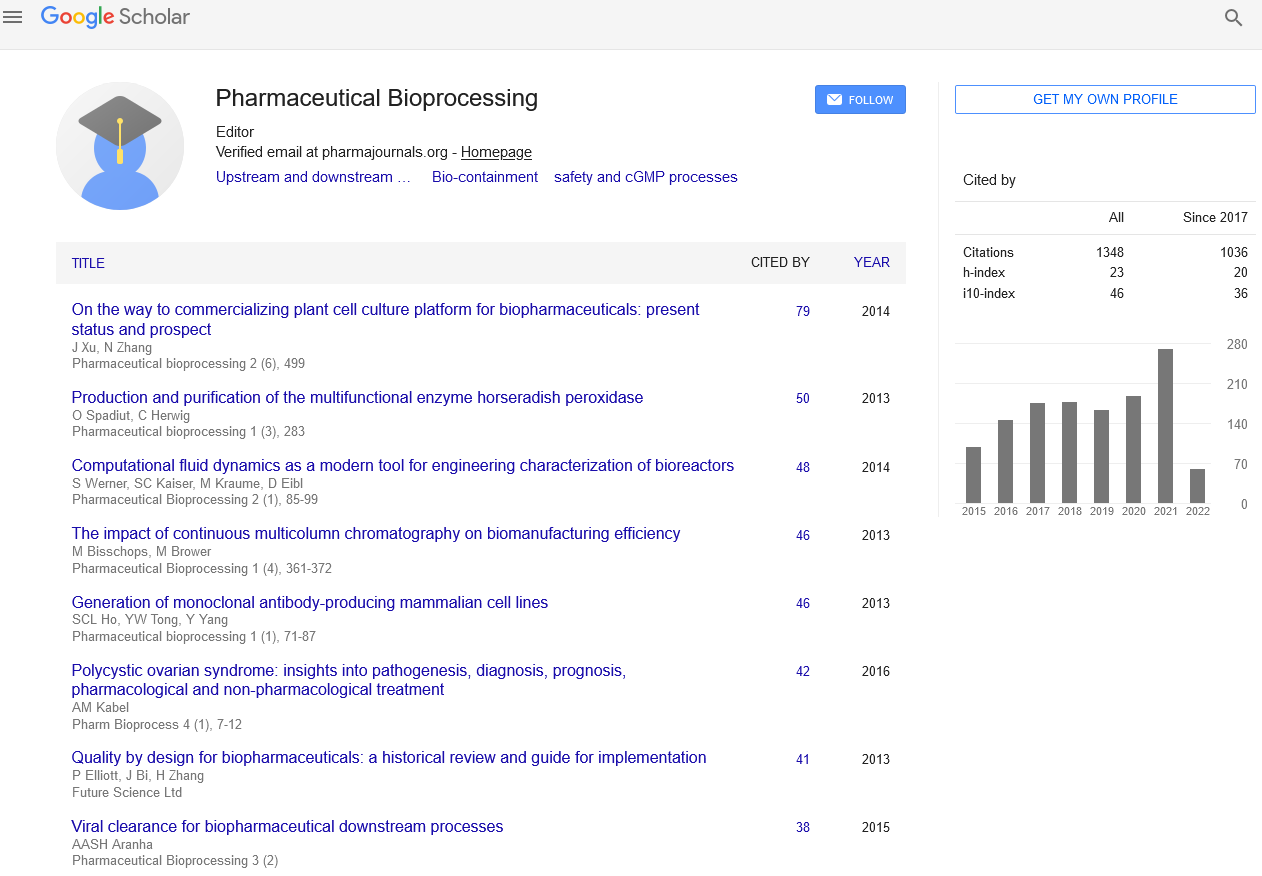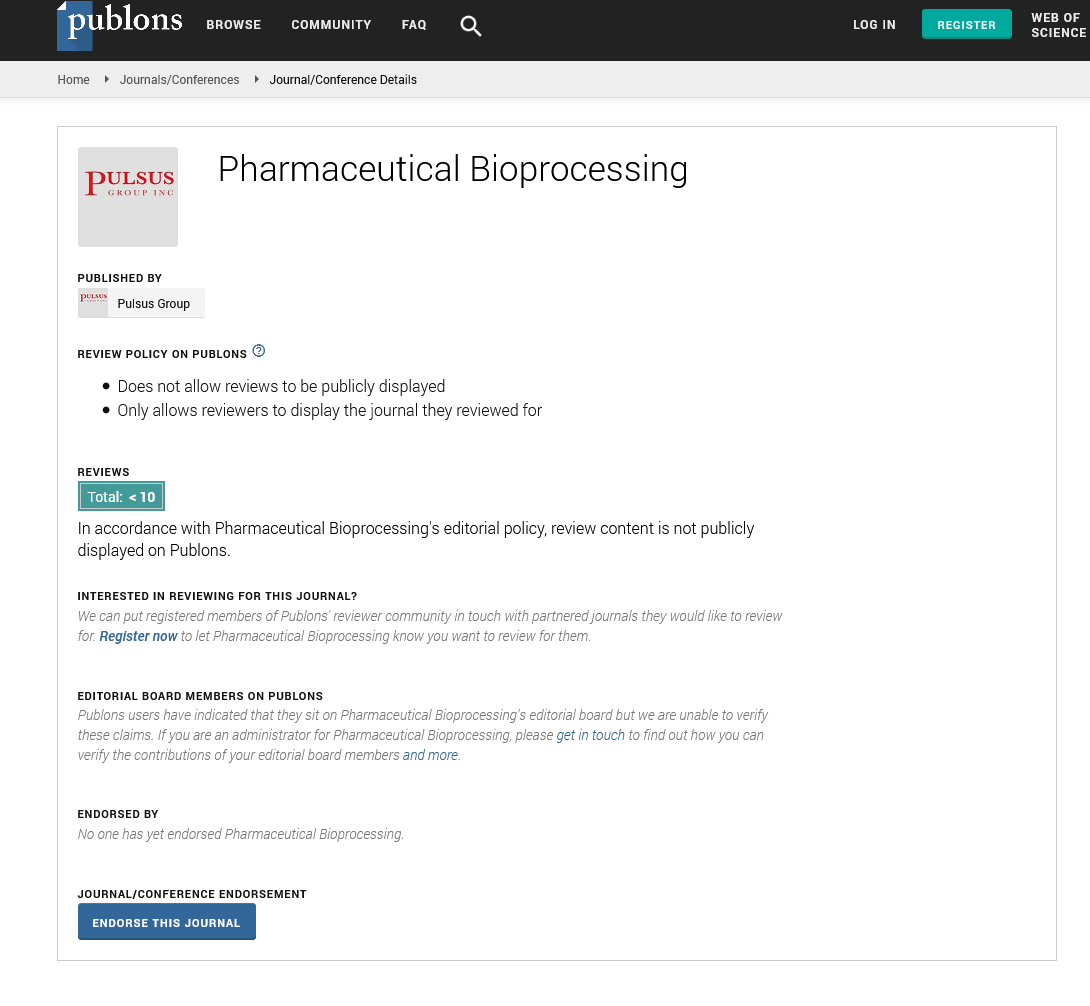Perspective - Pharmaceutical Bioprocessing (2024) Volume 12, Issue 6
Regulatory Issues: Challenges and Implications
- Corresponding Author:
- Ranjitha Sirohi
Department of Food Technology,
Institute of Pharmaceutical Sciences,
Punjab,
India
E-mail: ranjithabce@gmail.com
Received: 19-Nov-2024, Manuscript No. fmpb-24-152843; Editor assigned: 22-Nov-2024, PreQC No. fmpb-24-152843 (PQ); Reviewed: 06-Dec-2024, QC No. fmpb-24-152843; Revised: 10- Dec-2024, Manuscript No. fmpb-24-152843 (R); Published: 28-Dec-2024, DOI: 10.37532/2048-9145.2024.12(6). 236-237
Introduction
Regulations form the backbone of any organized society, ensuring safety, fairness and compliance across various sectors. However, navigating regulatory frameworks can be challenging for industries, governments and individuals alike. From evolving legal requirements to international compliance standards, regulatory issues influence global markets, public health, environmental sustainability and technological innovation. Understanding the complexity and implications of regulatory challenges is critical for all stakeholders.
Description
Understanding regulatory issues
Regulatory issues arise when laws, rules or guidelines governing activities are unclear, inconsistent, outdated or poorly enforced. These issues often affect businesses, public agencies and individuals, creating obstacles to compliance and operational efficiency. The complexity of regulations varies depending on the sector, with industries such as healthcare, finance and technology facing some of the most intricate regulatory landscapes.
Key factors contributing to regulatory challenges include:
Dynamic legislation: Regulations often evolve to keep pace with societal and technological changes, requiring constant adaptation.
Globalization: International trade and cooperation necessitate compliance with multiple jurisdictions, often leading to conflicting regulatory requirements.
Technological advancements: Emerging technologies like Artificial Intelligence (AI), biotechnology and block chain often outpace regulatory frameworks, creating gray areas.
Public expectations: Societal demands for transparency, safety and ethical practices add pressure on regulators and industries to adopt stringent measures.
Sector-specific regulatory challenges
Healthcare and pharmaceuticals: The healthcare industry faces rigorous regulatory scrutiny to ensure patient safety and efficacy of treatments. Regulatory bodies like the U.S. Food and Drug Administration (FDA) and the European Medicines Agency (EMA) set stringent guidelines for drug development, clinical trials and marketing.
Key issues: Lengthy approval processes delay the availability of life-saving drugs. High compliance costs burden Small and Medium Enterprises (SMEs). Global pandemics, such as COVID-19, expose gaps in emergency regulatory preparedness.
Technology and data privacy: As technology evolves, regulatory frameworks struggle to address issues related to cybersecurity, data privacy and ethical AI deployment. Laws like the General Data Protection Regulation (GDPR) in Europe and the California Consumer Privacy Act (CCPA) in the U.S. aim to protect user data but impose significant compliance requirements.
Key issues: Inconsistencies in global data privacy laws hinder international operations. Balancing innovation with regulatory compliance remains a persistent challenge. Enforcement mechanisms lag behind rapid technological adoption.
Environmental regulations: Environmental laws aim to mitigate climate change, reduce pollution and conserve biodiversity. Industries such as manufacturing, energy and agriculture face stringent environmental compliance requirements, often leading to operational and financial challenges.
Key issues: Frequent updates to environmental standards increase compliance complexity. Non-compliance penalties can significantly impact profitability. Disparities in enforcement across regions undermine global environmental goals.
Implications of regulatory issues: Regulatory challenges have far-reaching implications for businesses, governments and societies. Failure to address these issues effectively can result in significant consequences:
Financial burden: Regulatory compliance often involves substantial costs, from legal consultations to technology upgrades.
Non-compliance penalties can further strain financial resources.
Innovation stifling: Excessive or unclear regulations may deter innovation, particularly in fast-moving sectors like technology and healthcare.
Market access restrictions: Companies may face barriers to entering international markets due to conflicting or stringent regulatory requirements.
Reputational damage: Non-compliance can harm an organization’s reputation, eroding consumer trust and shareholder confidence.
Conclusion
Regulatory issues are an inevitable aspect of modern governance, shaping the way industries and societies function. While they present significant challenges, proactive strategies, technological advancements and collaborative efforts can mitigate their impact. By addressing regulatory issues effectively, stakeholders can foster innovation, ensure compliance and build a sustainable and equitable future.


